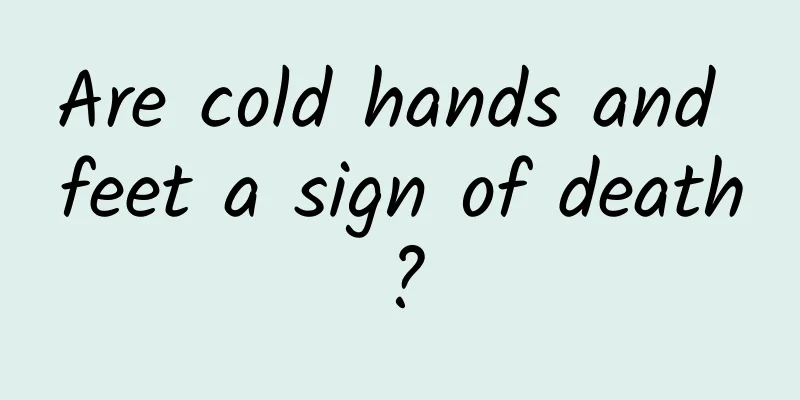Nausea after taking birth control pills

|
Contraceptive pills have certain side effects. Some women may experience symptoms such as nausea, vomiting, and dizziness after taking contraceptive pills. Especially when taking some emergency contraceptive pills, the symptoms of side effects may be more obvious. For example, they may cause menstrual disorders, intermittent vaginal bleeding, increased leucorrhea, thin leucorrhea, etc. Let us learn more about this aspect. Side effects of birth control pills Taking birth control pills actually inhibits or interrupts the normal state of the neuroendocrine axis, which has a certain impact on the body. Although occasional interference is not a big problem, it should not be done frequently. The side effects of taking birth control pills are mainly reflected in the following aspects: 1. Loss of appetite, nausea, vomiting, dizziness, and weakness. This often happens when you start taking a medication. When this reaction occurs, on the one hand, you can drink some strong tea, chew some candied ginger, and pickles; on the other hand, you must insist on taking the medication as prescribed. As the body adapts to the medication, the reaction will gradually disappear. For some women who have more severe reactions, they can take the following reaction-suppressing drugs appropriately: vitamin B6, 20 mg each time, 3 times a day; vitamin C, 100 mg per second, 3 times a day; anti-reaction tablets, 1 tablet each time, 3 times a day; compound aluminum hydroxide tablets or yeast tablets, 1 gram each time, once a day, taken together with contraceptives. 2. Leucorrhea increases and becomes thinner. It often occurs after taking long-acting contraceptives. Generally, no treatment is required. If there is too much leucorrhea, you can put a Chinese medicine tablet in the vagina every night. 3. Intermittent vaginal bleeding. It often occurs after missing a dose of birth control pills. Generally, as long as you continue to take the pills on time, the bleeding will stop and your menstrual period will return to normal. Of course, you can also ask your doctor to adjust the medication, or you can change to other contraceptives. For example, if you bleed after taking No. 2 contraceptive, you can switch to No. 1 contraceptive. 4. Lack of menstruation or even amenorrhea. This condition does not have much impact on physical health and is often temporary. If you have amenorrhea for three consecutive months, you should stop taking the medication, take other contraceptive measures, and resume taking the medication after menstruation resumes on its own. If menstruation still does not occur within one month after stopping the medication, you should ask your doctor to use drugs such as medroxyprogesterone acetate, combined progesterone or menstrual induction tablets to induce menstruation based on the examination results. After that, you should switch to other contraceptives. 5. Gaining weight too quickly. If there is edema, diuretics and low-salt food should be used; if the weight continues to increase significantly, the medication should be stopped and other contraceptive methods should be used instead. 6. Yellow-brown spots appear on the face. It will generally disappear gradually after stopping the medication. If you take vitamin B or vitamin C, the effect will be better. 7. Breast pain. Generally, the dosage can be reduced. If the condition is serious, you should consider stopping the medication and choosing other contraceptive measures. The dangers of taking birth control pills There are many types of contraceptives, whether they are long-acting or short-acting, their mechanism of action is the same, which is to achieve the purpose of contraception by inhibiting ovulation. Normal women have their own endocrine rules. The use of oral contraceptives will disrupt their own rules, so some side effects will occur during the medication process, which may lead to endocrine disorders, irregular menstruation, amenorrhea, infertility, or gastrointestinal discomfort, headache, weight gain, nervous tension, depression, skin pigmentation and acne, etc. |
<<: The best time to drink Chinese medicine after curettage
>>: What to do if your hands itch after touching yam
Recommend
What is the part above the throat?
The area above the throat is the tonsils. We know...
Post-myocardial infarction syndrome
We may not know much about post-myocardial infarc...
What are the symptoms of Yin blood deficiency?
The main symptoms of Yin-blood deficiency include...
How to treat pollen allergy
The phenomenon of pollen allergy exists in realit...
One calf is thick and the other is thin, what's the matter
There are many reasons why one leg is thicker tha...
The efficacy and function of tortoise shell
Turtle shell refers to the tortoise shell in Chin...
What causes chapped lips in summer?
In summer, lips are prone to dryness, and in seve...
Myofibroblastoma survival rate
Myofibroblastoma is a relatively serious disease....
What to do if your feet are itchy and peeling
We know that the skin is the largest organ in our...
The efficacy and function of Puhuang powder
Puhuang is a very common herb in daily life. Due ...
What causes swollen leg joints in the elderly?
When the joints of the elderly are swollen, it is...
What to do if women have postpartum urticaria
Many women will also experience symptoms of urtic...
The three typical symptoms of asthma are
Asthma is a relatively common respiratory disease...
What does a pregnant uterus look like?
When a woman successfully conceives, the fertiliz...
What causes black lips?
Every woman wants to have a beautiful face, big e...









